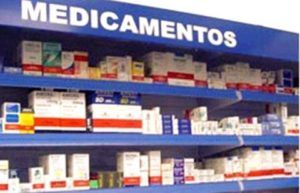The shortage of medical supplies in hospitals and health centers, according to TH, causes the authorities to declare “states of emergency” that displace the regular public purchase of medicine determined by the Contract Law of the State. The money spent in these “emergencies” goes to line the pockets of politicians and businesspersons that manage to amass fortunes at the expense of public health.
This situation without a doubt heavily affects the social services of the government in its efforts to develop the poorest parts of Honduras.
For Alfredo Faraj, the former president of the School of Chemical Pharmaceuticals, “this is not new in the Ministry of Health, because it has had “purchases of emergency” its whole life… if there are not changes, it will continue happening.”
This underscores the fact that “if the government planned, it would not find any obstacles in keeping the hospitals well-stocked, but in every emergency purchase, the same drug companies participate and assign the prices they want, without reference to the requirements of official public purchases.”
Faraj is of the opinion that emergency purchases should be abolished because of the corruption they breed. “While we continue not to plan, we will continue to receive the same results and the state will lose more and more money” reiterated Faraj.
The professional also stated that the Health Ministry does not buy quality medicines for the people because policy demands that medicine is purchased based on its affordability. “And this is where the money is wasted because those that make the purchases are simply state auditors… and we can’t permit that the same people buy the product only for the price without considering quality” declared Faraj.
The Commission for the Defense and Promotion of Competition, (CDPC) whose technical director is Efraín Corea, said that between 2008 and 2012 the government budgeted 151 thousand million lempiras ($7.5 billion) for the medical supplies required by state institutions.
“Nevertheless, in practice the purchases have been made from the same companies, creating enormous losses for the country,” he added, after declaring that” if the state buys with competition in mind, it could save a lot of money.”
Corea stated that for 2012 the state had budgeted some 45 million lempiras for this year for spending, and if it had applied the norms of competition, it would have saved 9 million lempiras.
Father Rafael Alvarado, coordinator of the Commission of Inter-institutional Medicines, said that “we continue having this problem with medicine because social society is not taking seriously this problem.”
He affirmed that “the purchase of medicines needs a specific law that discards the current Contract law because it is limited and restricted to technocrats that make the purchases. Rather, those making the purchases must feel the weight of the work that they are undertaking in purchasing medicine for the public.
According to the CDPC, public spending on purchases is between 5-10% of GDP, and 20% of the national budget. GDP is the value of all the goods and services produced by a country in a given year.
The budget for 2012 is 144 thousand million lempiras ($7.2 billion). It 80% financed by Honduras, and 20% financed by foreign resources and donations.
Despite this sad outlook regarding Honduran healthcare, hope is evident in the National Autonomous University’s recent acquisition (from the government) of oversight of the Hospital Escuela, the nation’s major hospital. Its promise to complete this task with honor is important, considering it is the largest hospital in Honduras, and daily serves over 2000 Honduras seeking healthcare services.



















